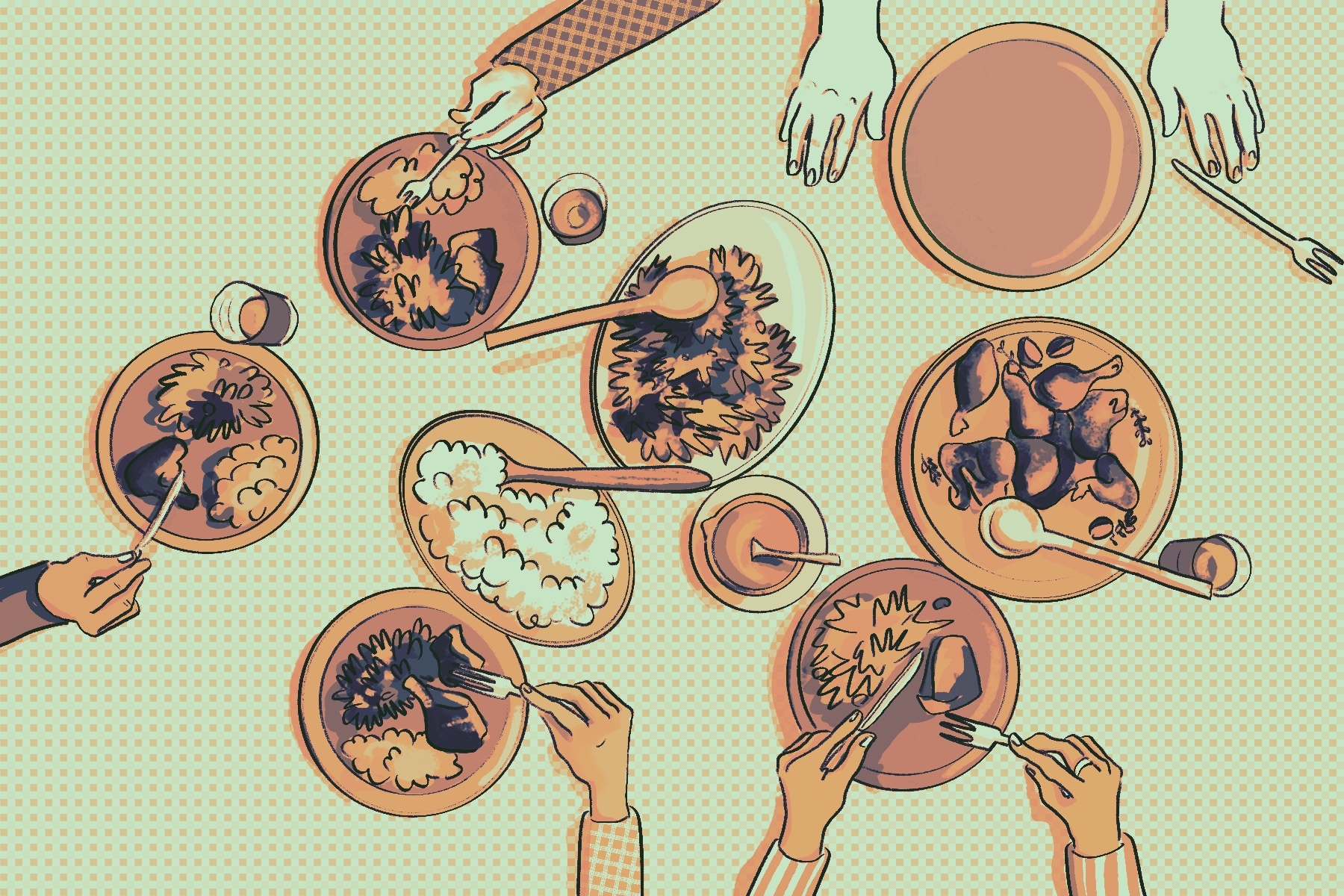The average American might not have much to say about Sweden beyond IKEA, ABBA and the chef from “The Muppets” who speaks in gibberish. Beyond these three pillars of Swedish culture, however, Sweden is well known for its high standard of living. This is the result of high taxation, which allows Swedish citizens to enjoy social services such as universal public health care, subsidized prescription drugs and dental care (free for children), free abortions, free maternity clinics and prenatal care, subsidized child care, robust old-age pensions and more. In 2021, USNews ranked Sweden No. 1 on their list of “Most Progressive Countries in the World,” and No. 9 on their list of “Best Countries Overall.” On the surface, Sweden appears to be a utopia. However, one widely circulated Twitter debate may have the power to pull at the seams of Sweden’s perfectly tailored reputation. A seemingly innocuous Reddit comment about one person’s strange experience with Swedish hospitality (or lack thereof) went viral after it was posted on Twitter. The resulting debate (and memes) about Swedish culture was dubbed #Swedengate.
The comment that spurred #Swedengate was made on r/AskReddit, a subreddit that allows users to pose questions to an audience of 36.1 million members. The post that sparked the online debacle asked users to describe “the weirdest thing you had to do at someone else’s house because of their culture/religion.” One Reddit user replied: “I remember going to my Swedish friend’s house. And while we were playing in his room, his mom yelled that dinner was ready. And check this. He told me to WAIT in his room while they ate. That s— was fucking wild.” A screenshot of the comment was posted on Twitter by @SamQari, and #Swedengate was soon flooded with incredulous non-Swedes doubting the veracity of the user’s anecdote. There’s just no way Swedish parents would force their children’s friends to go hungry while the rest of the family enjoyed a meal, right?
The answer: kind of, sort of. It was nearly impossible to discern the truth of Swedish hospitality through the chaos of jokes and fake anecdotes from people who have never stepped foot in Sweden. On Twitter, there was little input from actual Swedes, beyond a few celebrities — singer Zara Larrson posted a video describing her experience growing up in Sweden, which correlated with the Reddit user’s experience. Larsson said, “A lot of families would never [exclude guests from family dinner], but a lot of families would.” Larsson, referencing how some Twitter users connected #Swedengate to a larger culture of racism and xenophobia within Sweden, acknowledges that Sweden played a role in the Atlantic slave trade, a fact that many Americans may be unaware of.
Comparing Sweden’s lackluster hospitality to a larger culture of xenophobia and racism may seem like a reach, but people used #Swedengate as an opportunity to shed a light on the issues within Sweden and prove that it may not be the utopia it appears to be. The Swedish Democrats, a right-wing political party with neo-Nazi roots and a distinctly anti-immigration platform (the party links increased immigration to increased crime rates, but there are no official statistics that demonstrate a correlation), won nearly 18% of the vote in Sweden’s 2018 general election and remains the third largest party in Swedish Parliament. Sweden is known for its open-door immigration policy, but the Swedish Democrats advocate for ending asylum immigration entirely. The Swedish Democrats have said that they would allow immigrants who can provide “skilled labor” as long as they could “assimilate.” Connecting Sweden’s rising xenophobia to the social etiquette revealed via #Swedengate may be prescribing a deeper meaning to something that is just not that deep, but transforming a Twitter joke into a teachable moment has never hurt anybody.
To determine whether it is truly common practice in Sweden to send children home hungry, I returned to the place where it all began: Reddit. The subreddit r/Sweden (referred to as Sweddit in their “about” page) is an online gathering place for Swedish Redditors. The page pinned an entire megathread dedicated to #Swedengate at the top of the Subreddit. After several hours spent churning Swedish comments through Google Translate, I learned that Swedes were just as divided on the matter as the rest of Twitter.
“It [refusing to offer food to unexpected guests] is a common phenomenon in Sweden that does not exist in most other cultures. Remember for yourself how you sometimes had to sit hungry inside your friend’s room while you waited. Would never happen in most other cultures in the world. Do not really know what it is due to. Are people too lazy to cook some extra food?” commented one Swedish Reddit user.
Another user commented, “When I was growing up in the beginning of 2000, my friends and I lived close to each other. It was a bit of an unspoken rule that everyone went home to eat, but that was because everyone would usually eat at different times. Of course you could be invited too, but then it was [because] my own parents were disappointed that I did not eat at home: therefore it was a social opportunity to talk about how the day was and so on.” Similarly, one user wondered “if it’s more about the parents wanting to have the opportunity to gather as a family after the end of the day than that they were too stingy to offer food.” One user even joked, “Tonight we had the neighbor’s 5-year-old over who had dinner with us after playing with my own 5-year-old. I now understand that it was a mistake. Next time, he’s going to stay in my baby’s room.”
The overall consensus appears to be that the practice of exiling your children’s guests to the bedroom or to the streets during dinnertime was far more socially acceptable from the ’70s to the ’90s, and has become less common in recent years; however, it is still not a social standard in Sweden to offer your guests food or drinks when they arrive unexpectedly. Contrast this with the overwhelming hospitality of, for example, the American South, and one can understand why #Swedengate rattled Americans so severely.
In defense of Swedish etiquette, it is important to mention that Sweden has a shared tradition called “fika” where people meet at cafes or in the home to share coffee and a light snack, such as a pastry. Swedes enjoy sharing meals with their loved ones, just like any other culture, and the dinner guest is usually expected to bring a small gift as thanks. The key factor here is that these exchanges are planned in advance. Swedes typically avoid interacting with others outside of their immediate circle (eye contact with strangers is avoided at all costs, and small talk is referred to as kallprat/cold talk or dödprat/dead talk), but this doesn’t mean Swedes are inherently unfriendly. Every culture has its own set of social norms and conventions that appear strange to outsiders — especially to Americans, who are often perceived by foreigners to be annoyingly loud, aggressively outgoing and rude, to the point where there is an entire trope dedicated to this stereotype.
Most people are not particularly excited to feed an unexpected guest, but it’s just something you are expected to do. Feeding one another is the most universally understood way to tell another human you care. Food is love. The idea of exiling your child’s friend to another room while the rest of the family eats dinner will naturally be perceived as cold to people who are unfamiliar with Swedish social etiquette, but perhaps this is to be expected from a country that can experience winter temperatures as low as -43.8C.

















